Election Commission vs Political Pressure : The Reality & Challenges
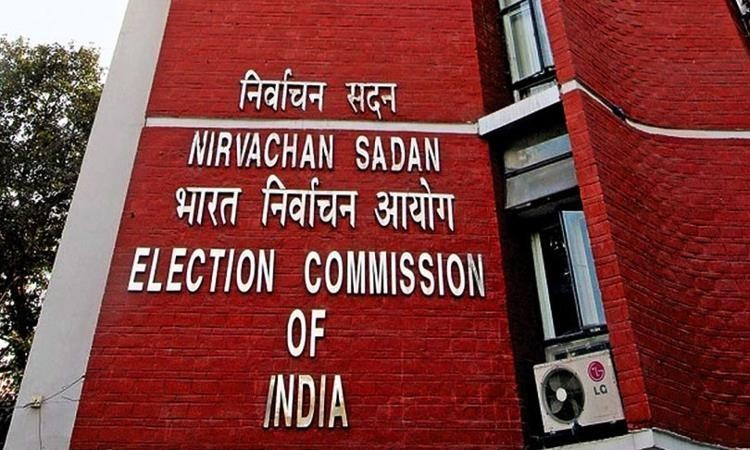
Context:
- After former CM of a state raised concerns about the Election Commission's independence, suggesting a connection between CEC Rajiv Kumar's post-retirement ambitions and his decisions, the poll panel defended its integrity against these allegations.
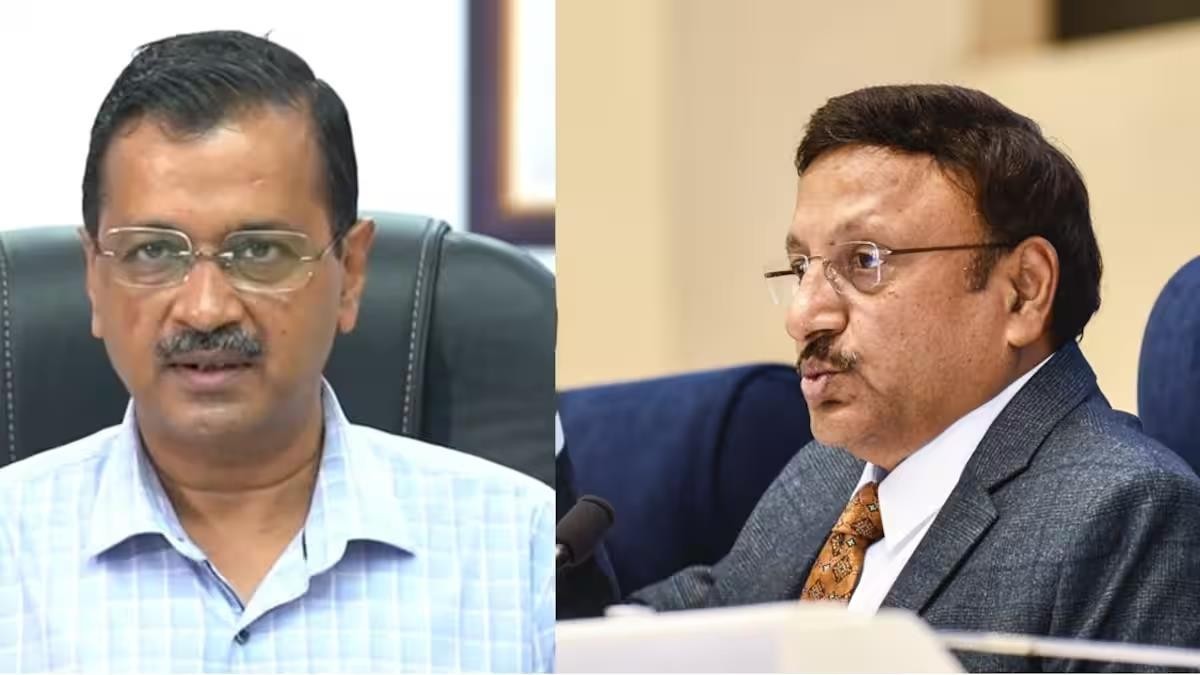
1.
Enlist various constitutional provisions related to election in India?
- Part XV (Article 324-329) of the Indian Constitution deals with elections and establishes a commission for these matters.
| Constitutional Articles | Description |
|---|---|
| Article 324 |
|
| Article 325 |
|
| Article 326 |
|
| Article 327 |
|
| Article 328 |
|
| Article 329 |
|
2.
How has the Electoral System of India evolved?
| General Elections post Independence |
|
|---|---|
| Formation of Election Commission |
|
| Composition of Election Commission |
|
| First delimitation order |
|
| Representation of the People Act, 1950 |
|
| Specifications of First Elections |
|
| Recognition of Political Parties |
|
| Adoption of ‘Balloting System’ |
|
| ‘Marking system’ of voting |
|
| Electronic Voting Machines (EVMs) |
|
3.
What is the Election Commission of India (ECI)?
- The Election Commission of India (ECI) is an autonomous and permanent constitutional body responsible for organising free and fair elections in the Union and States of India.
- The Constitution grants the ECI with the power of direction, superintendence, and control of elections to Parliament, state legislatures, the office of president of India and the office of vicepresident of India.
- The ECI does not deal with the elections to the urban bodies such as Municipalities and Panchayats in the states and hence, a separate State Election Commission.
- Article 324 of The Constitution of India mentions the provisions to safeguard and ensure the independent and impartial functioning of the Election Commission.
- The chief election commissioner is provided with security of tenure.
- He cannot be removed from his office except in the same manner and on the same grounds as a judge of the Supreme Court.
- In other words, he can be removed by the President on the basis of a resolution passed to that effect by both the Houses of Parliament with a special majority, either on the ground of proved misbehaviour or incapacity.
- Any other election commissioner or a regional commissioner cannot be removed from office except on the recommendation of the chief election commissioner.
4.
What is the composition of the Election Commission of India?
- Article 324 of the Constitution has made the following provisions about the composition of the Election Commission of India.
- ECI shall consist of the Chief Election Commissioner (CEC) and such number of other Election Commissioners (ECs) as the President may from time to time fix.
- The appointment of CEC and other ECs shall be made by the President.
- When any other Election Commissioner is so appointed, the Chief Election Commissioner shall act as the Chairman of the ECI.
- The President may also appoint after consultation with the ECI such Regional Commissioners (RCs) as he may consider necessary to assist the ECI.
- The conditions of service and tenure of office of the Election Commissioners and the Regional Commissioners shall be determined by the President (subject to any related law made by the Parliament).
- According to the Election Commission (Conditions of Service of Election Commissioners and Transaction of Business) Act, 1991, the Chief Election Commissioner and the Election Commissioners hold office for a term of 6 years or until they attain the age of 65 years, whichever is earlier.
5.
Discuss various functions of the Election Commission of India?
| Administrative Functions |
|
|---|---|
| Quasi-Judicial Powers |
|
| Advisory Powers: |
|
| Judicial Review |
|
6.
What is the opposition and political analysts view wrt political pressure on ECI?
| Political party | Allegations |
|---|---|
| Indian National Congress |
|
| Aam Aadmi Party(AAP) |
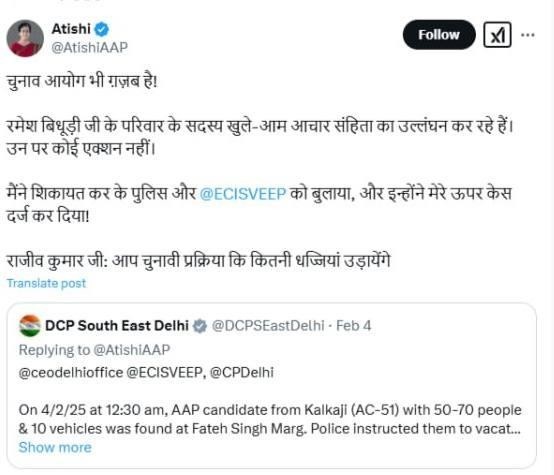
|
| All India Trinamool Congress(TMC) |
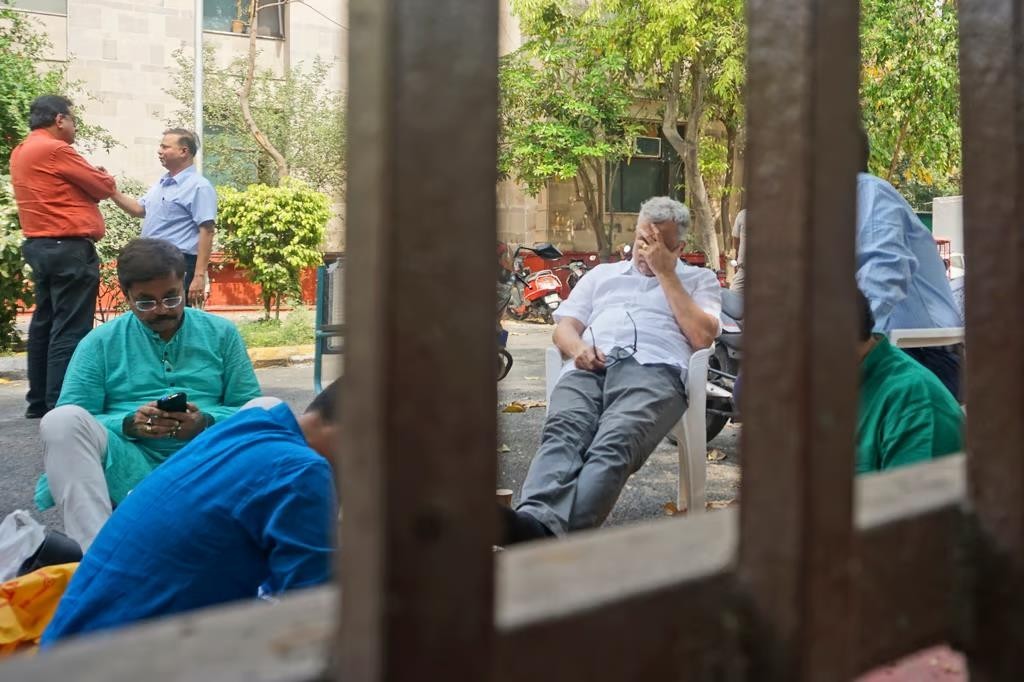 |
| Samajwadi Party |
|
| Arati Jerath (journalist and political analyst) |
|
| EVM Hacking |
|
7.
How did the Election Commission respond to allegations?

| Denial of accusations |
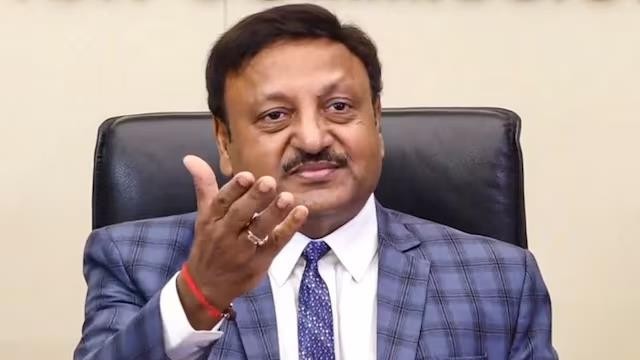 |
|---|---|
| Collective Decision making |
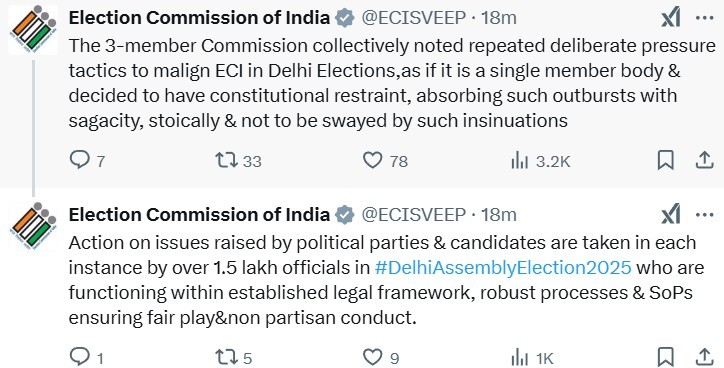
|
8.
Can EVMs be hacked?
The EVM’s cannot be hacked due to the reasons given below:
| M1 (model one) of EVM machines |
|
|---|---|
| M2 model of EVMs |
|
| Tamper detection and selfdiagnostics |
|
| Real time settings |
|
| ECI- EVMs are not computer controlled |
|
| ECI-EVMs do not have any frequency receiver or decoder for data |
|
| Very stringent security protocol |
|
| Most sophisticated technological features |
|
9.
Is there any case of EVM hacking?
- ECI threw an open hacking challenge in June 2017 for whoever claimed that the EVMs could be tampered with.
- This challenge came amidst various claims by cyber experts that they could be hacked and pre-programmed.
- Among the most prominent cases was the cyber expert Syed Shuja who claimed via a Skype Interview from London that he was among the developers of the machine and could hack EVM. However, his claims were proven invalid when he could not hack the machine.
10.
What are a few earlier judgments of the Supreme Court on EVM?
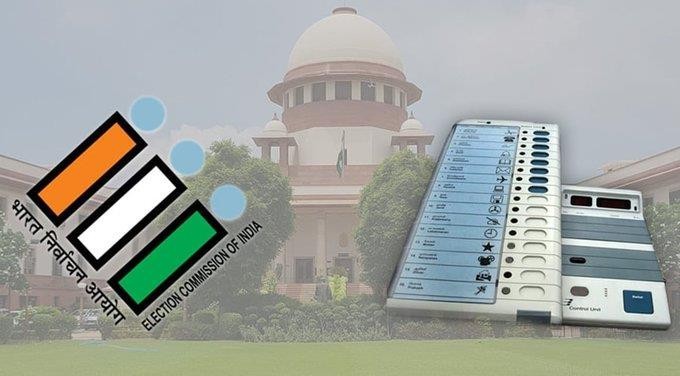
- The Supreme Court dismissed the petition alleging irregularities in the function of EVMs, citing, ‘Can't go by assumptions’.
- In a 2013 Subramanian Swamy V/s ECI case, the Supreme Court emphasized the necessity of implementing VVPAT in elections conducted through EVMs.
- In a Chandrababu Naidu Case (2019) the court ordered the EC to count VVPATS in five polling stations instead.
11.
Enlist various challenges wrt Election Commission of India?
| Challenges | Analysis |
|---|---|
| Political Interference |
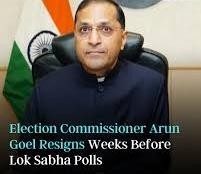
|
| Limited Powers |
|
| Electoral Fraud and Malpractice |
|
| Electoral Violence |
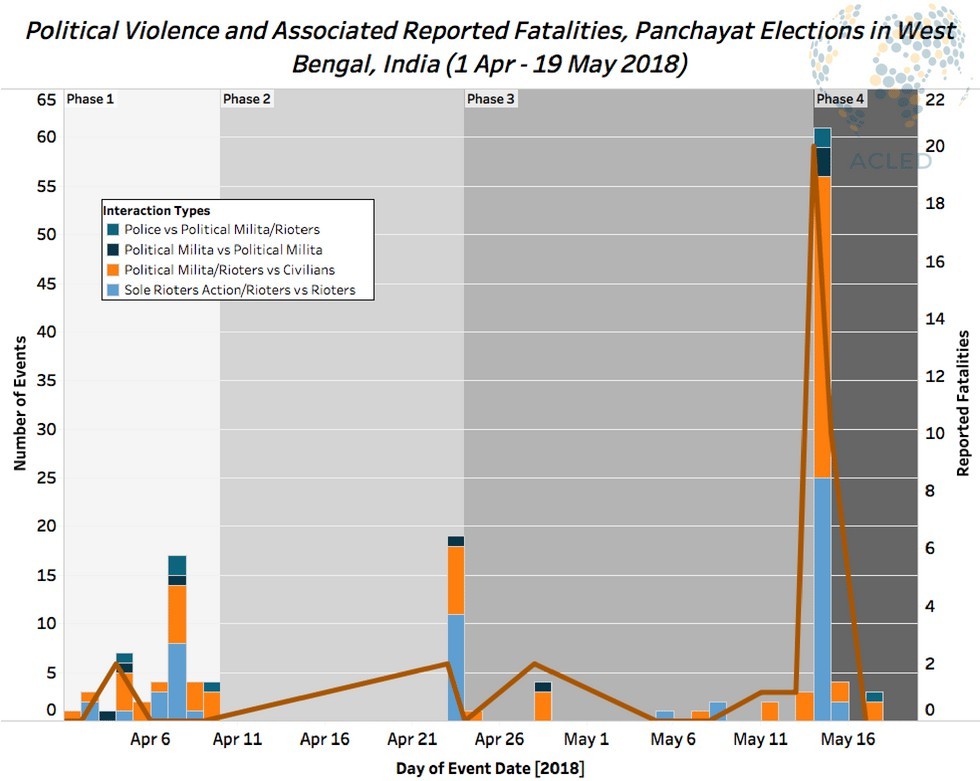 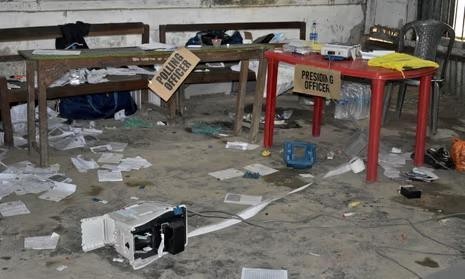 |
| Deepfake Deception |
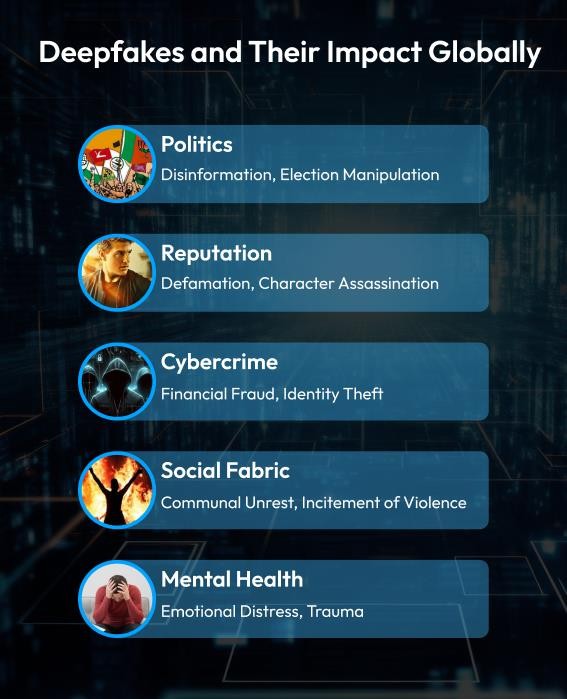 |
| Electoral Disinformation and Manipulation |
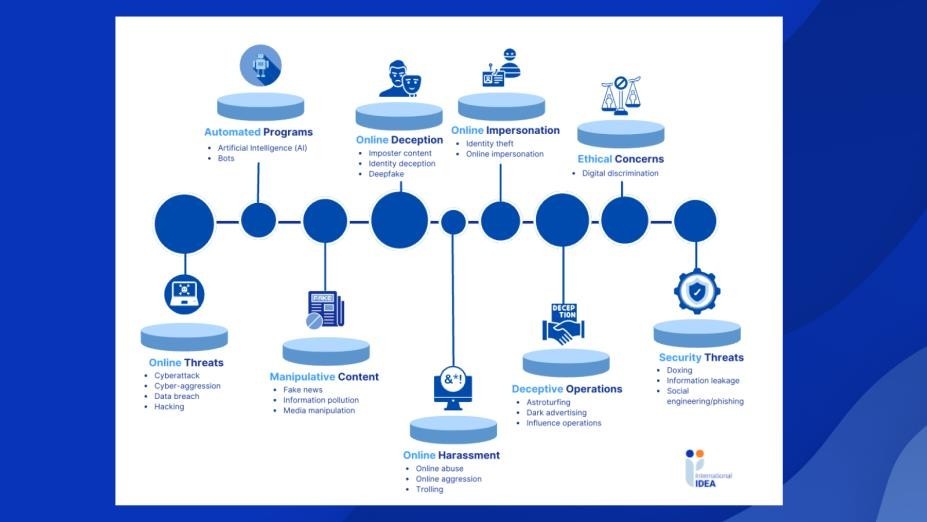 |
12.
What are the Supreme Court’s Directions to Promote Independence of ECI?
- In Anoop Baranwal vs Union of India Case (2023), the Supreme Court gave the following directions to ensure the independence and neutrality of the Election Commission.
| Appointment of the Chief Election Commissioner (CEC) |
|
|---|---|
| Grounds for removal |
|
13.
Comment on the status of Independence of Election Commission of India (ECI)?
ECI as Independent Body:
|
| Security of tenure |
|
|---|---|
| Service conditions |
|
| Other election commissioner or a regional commissioner |
|
| Complete Authority |
|
| Flaws In Ensuring Independence Of ECI | |
| Appointment |
|
| Term of office |
|
| Retired Election Commissioners |
|
14.
What is the Representation of Peoples Act 1950?
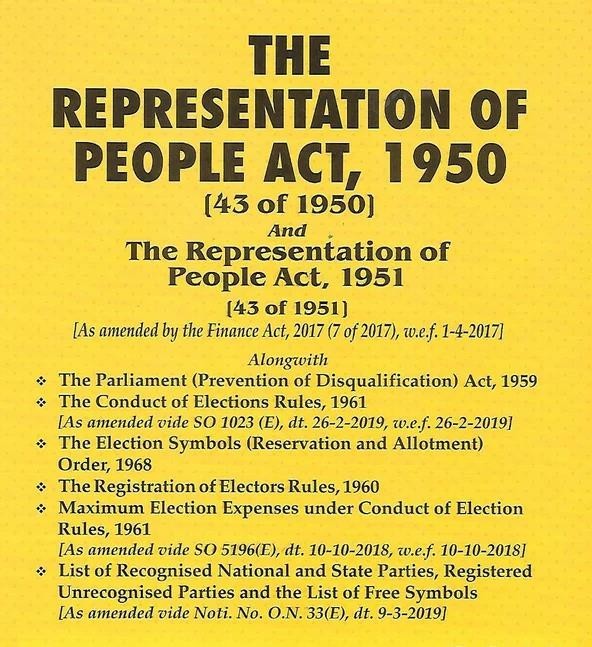
- To provide a legal framework for elections, Parliament passed the Representation of the People Act, 1950.
- The RPA, 1950, lays down procedures for the delimitation of constituencies, seat allocation in legislative bodies, electoral roll preparation, voter qualifications, and more.
| Provisions | Analysis |
|---|---|
| Delimiting Constituencies |
|
| Allocation of Seats |
|
| Electoral Rolls |
|
| Electoral Officers |
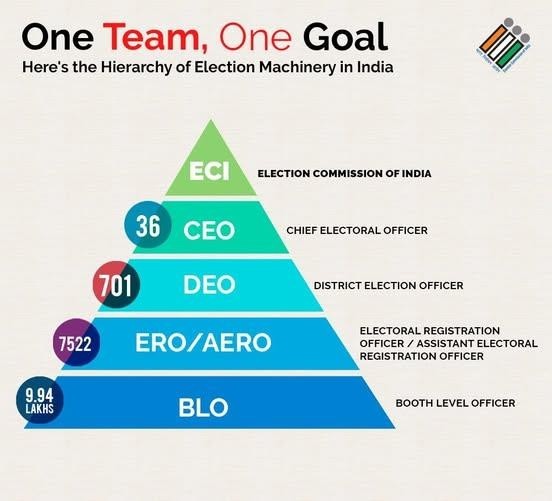
|
| Schedules in RPA, 1950 |
|
15.
What is the Representation of Peoples Act 1951?
- The Representation of the People Act 1951 (RPA) is a crucial legislative framework that guides India’s electoral process, ensuring transparency, fairness, and efficiency in the democratic system.
- It was introduced in Parliament by law minister Dr. B.R. Ambedkar.
- The Act was enacted by the provisional parliament under Article 327 of Indian Constitution, before the first general election.
- It defines rules for conducting elections, candidate eligibility, registration of political parties, and disqualification criteria, promoting a balanced and ethical electoral environment.
| Provisions of RPA, 1951 | Description |
|---|---|
| RPA act provides for: |
|
| Qualification for membership of the Lok Sabha |
A person shall not be qualified to be chosen to fill a seat in the House of the People, unless-
|
| Qualification for membership of the Council of States |
|
| Disqualifications |
Found guilty of election offences/corrupt practices.
|
| Election offence covered under RPA |
|
| Election expenses |
|
| Provisions Related to Political Parties |
|
| Section 126 of the RPA, 1951 |
|
| Voluntary Contributions |
|
| Declaration of Assets and Liabilities |
|
16.
Enlist some fascinating facts regarding Elections in India?
| Facts | Description |
|---|---|
| The first election |
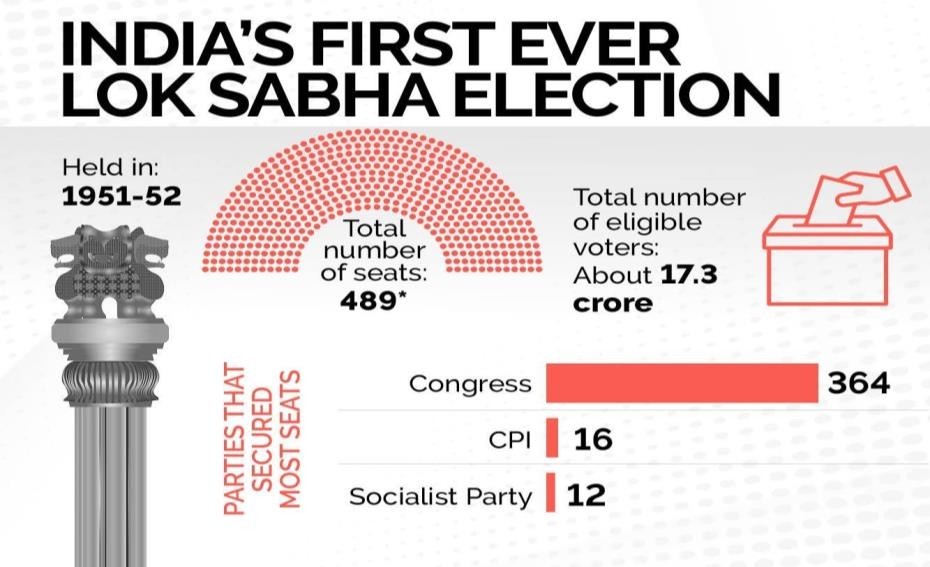
|
| Voting age and equality of all citizens |
|
| The first Election Commissioner Of India |
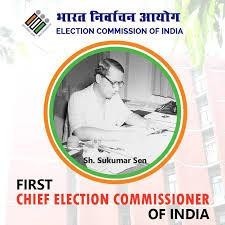
|
| The TopSecret Indelible ink |

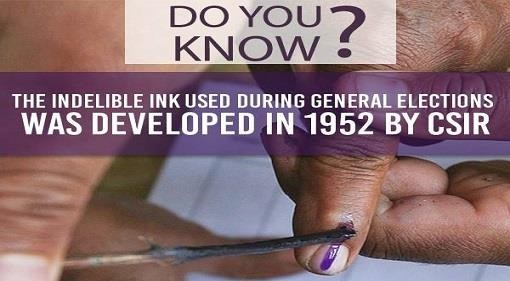 |
| The first ever ballot box |
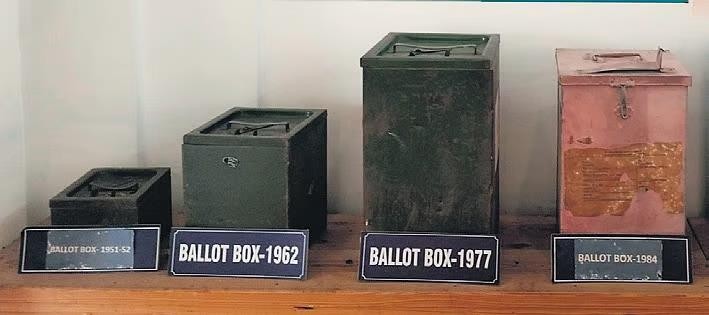
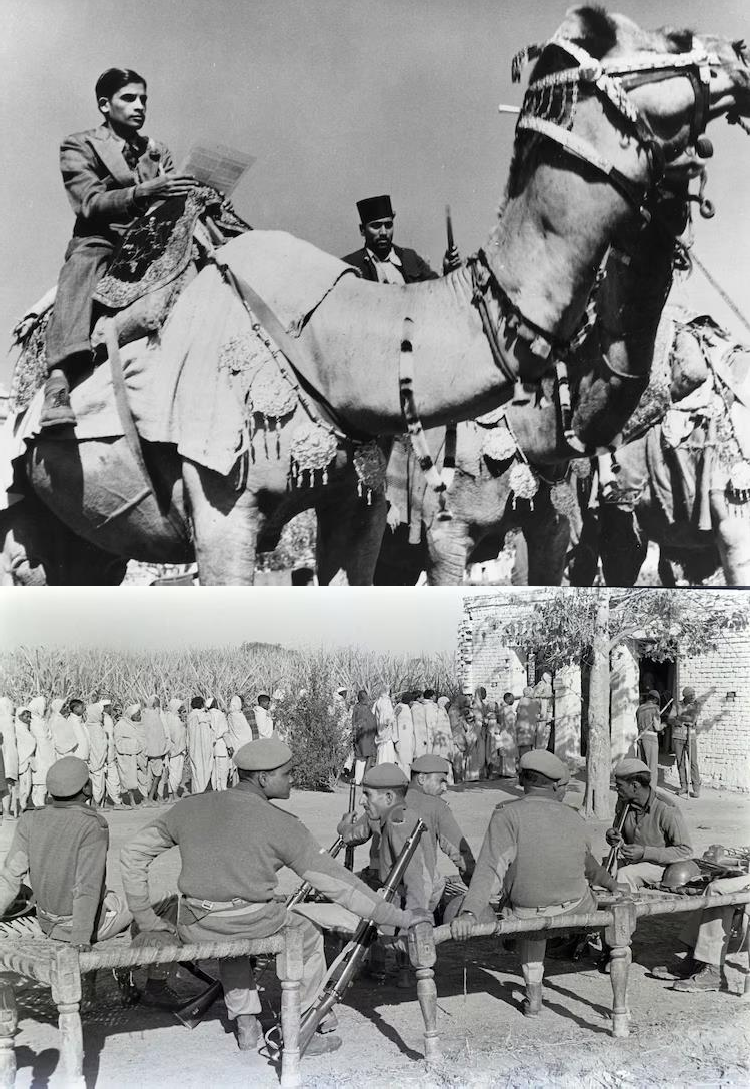 |
| NOTA votes and its design |
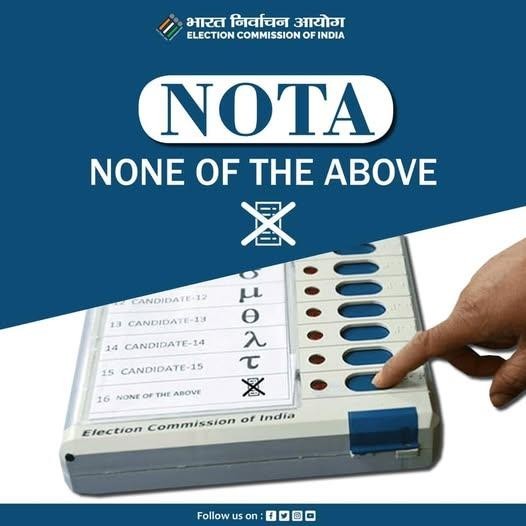
|
| 2024 elections: A festival of democracy |
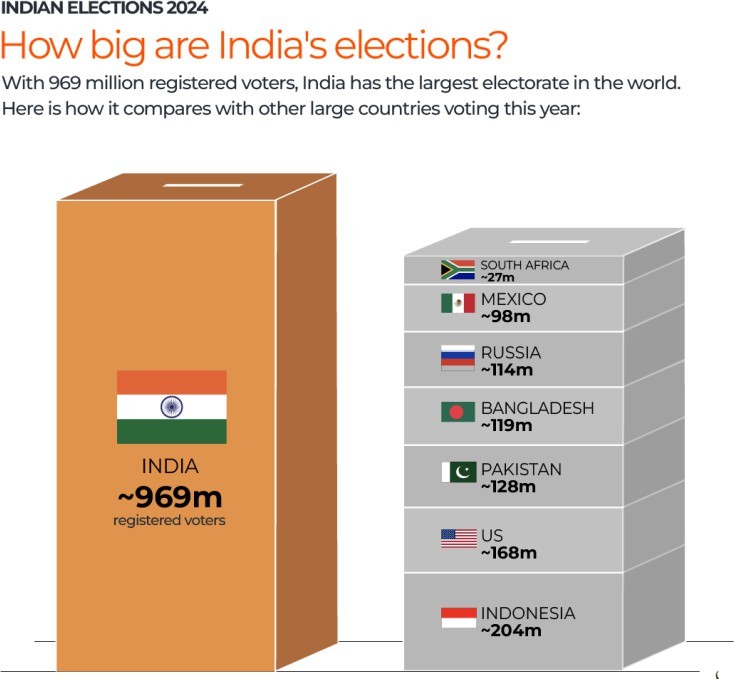
|
17.
What is EVM?
- EVM stands for Electronic Voting Machine.
- It is a device used to electronically record and count votes cast in elections.
- ECI – EVM consists of Ballot Unit (BU ), Control Unit ( CU ) and the later added Voter Verifiable Paper Audit Trail (VVPAT).
- Electronic Voting Machines (EVMs) consisting of Ballot Unit (BU) & Control Unit (CU) were used for the first time in the byelections to Parur Assembly Constituency of Kerala in 1982.
- EVMs/VVPATs are not imported but indigenously designed and manufactured by two Public Sector Undertakings (PSUs) namely Bharat Electronics Limited (BEL), under the Ministry of Defence and Electronics Corporation of India Limited (ECIL), under the Department of Atomic Energy under the guidance of the Technical Experts Committee (TEC) constituted by the Election Commission of India.
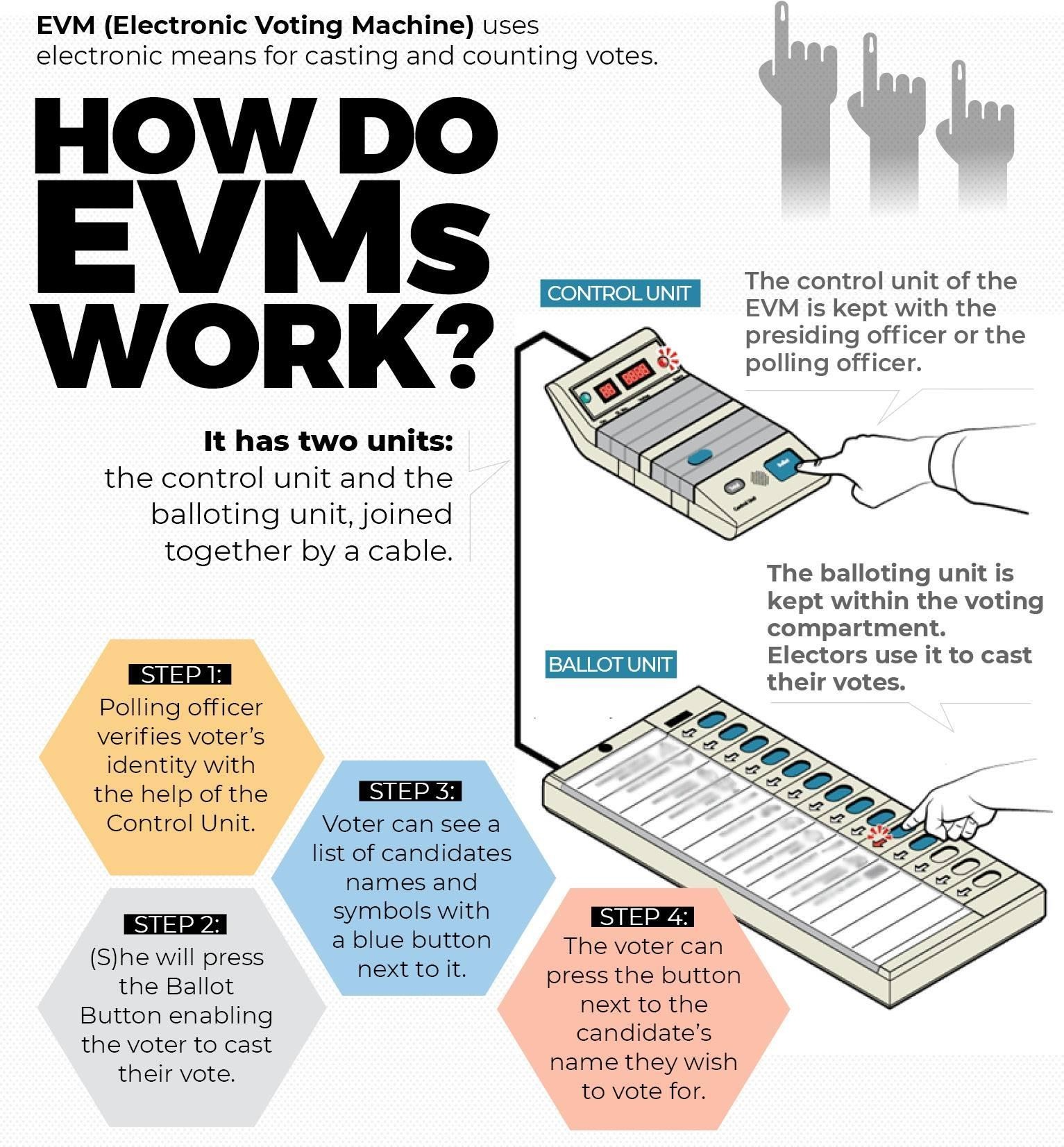
18.
What is VVPAT?
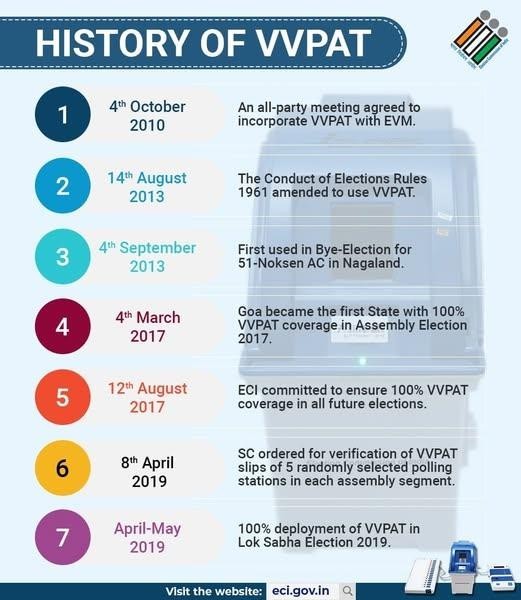
- Voter verifiable paper audit trail (VVPAT) or verifiable paper record (VPR) is a method of providing feedback to voters using a ballotless voting system.
- Voter Verifiable Paper Audit Trail with EVM was used for the first time in the by-election to Noksen Assembly Constituency of Nagaland in 2013.
- A VVPAT is intended as an independent verification system for voting machines designed to allow voters to verify that their vote was cast correctly, to detect possible election fraud or malfunction, and to provide a means to audit the stored electronic results.
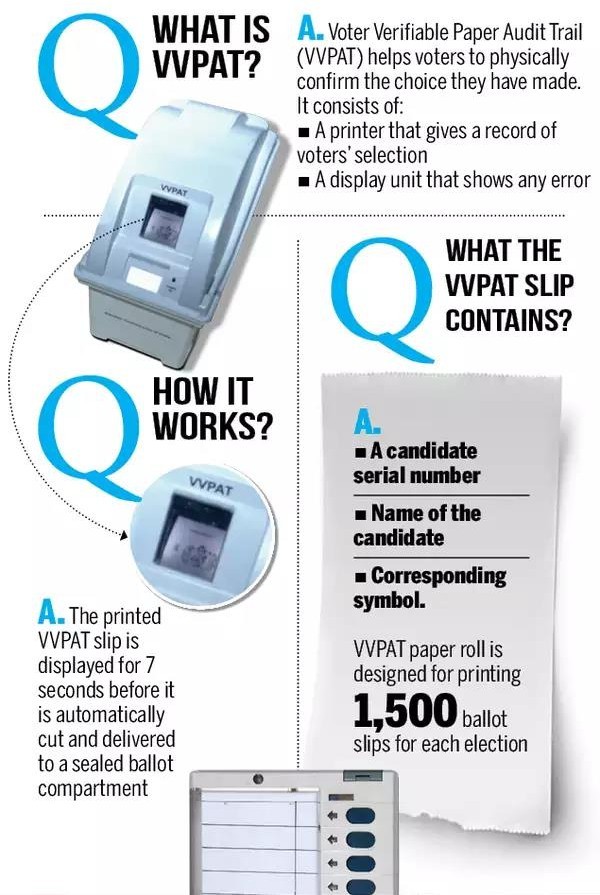
19.
Enlist various initiatives taken by the Election Commission of India to reform the electoral process in the country?
| Eco-friendly elections |
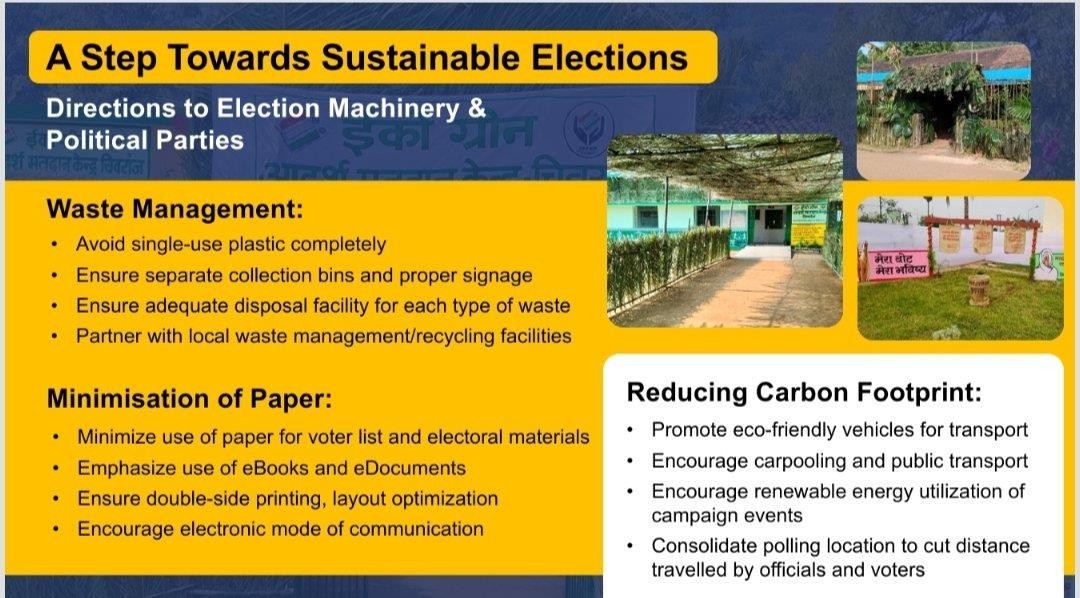 |
|---|---|
| Optional facility of online data entry of personal details by candidates in Nomination Form and Affidavit |
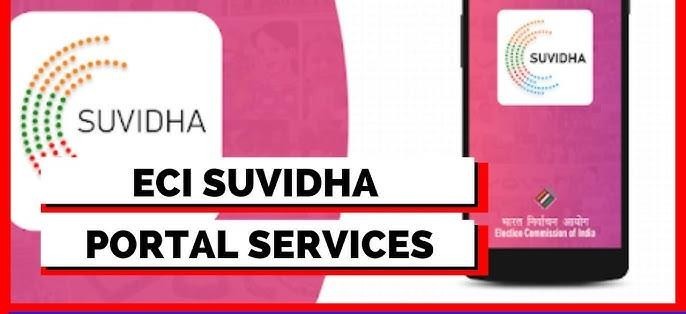
|
| Optional Postal Ballot facility for Absentee voters |
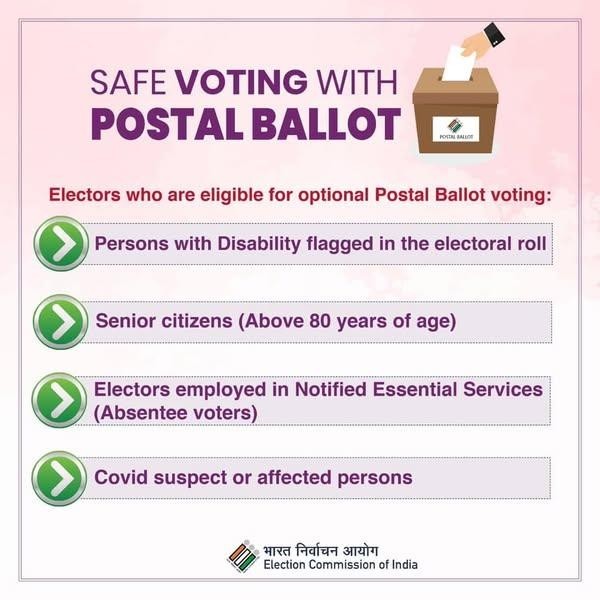 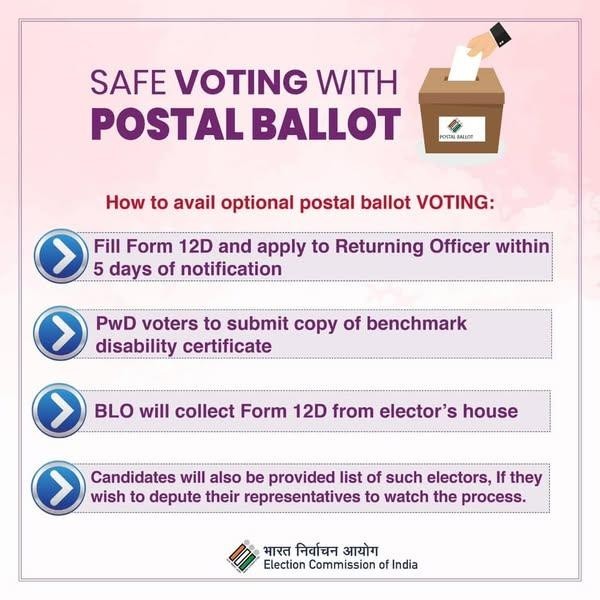
|
| Requirement of publishing details of candidates with pending criminal cases |
|
| Free time on DD & AIR to political parties to propagate the policies |
|
20.
Mention about the challenges associated with elections in India?
| Challenges | Analysis |
|---|---|
| Criminalization of politics |
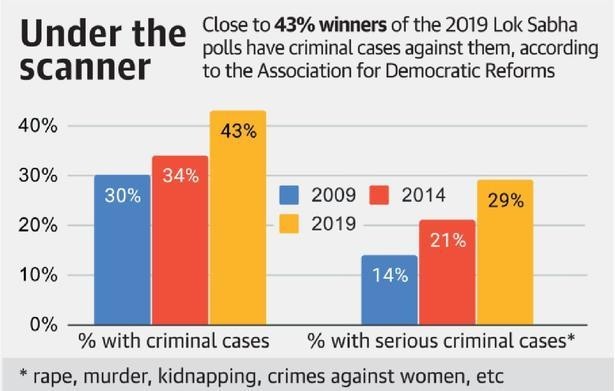 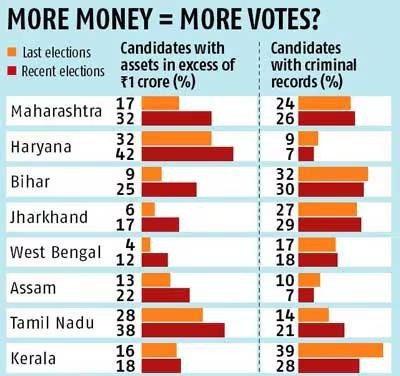 |
| Money and Muscle power in election |
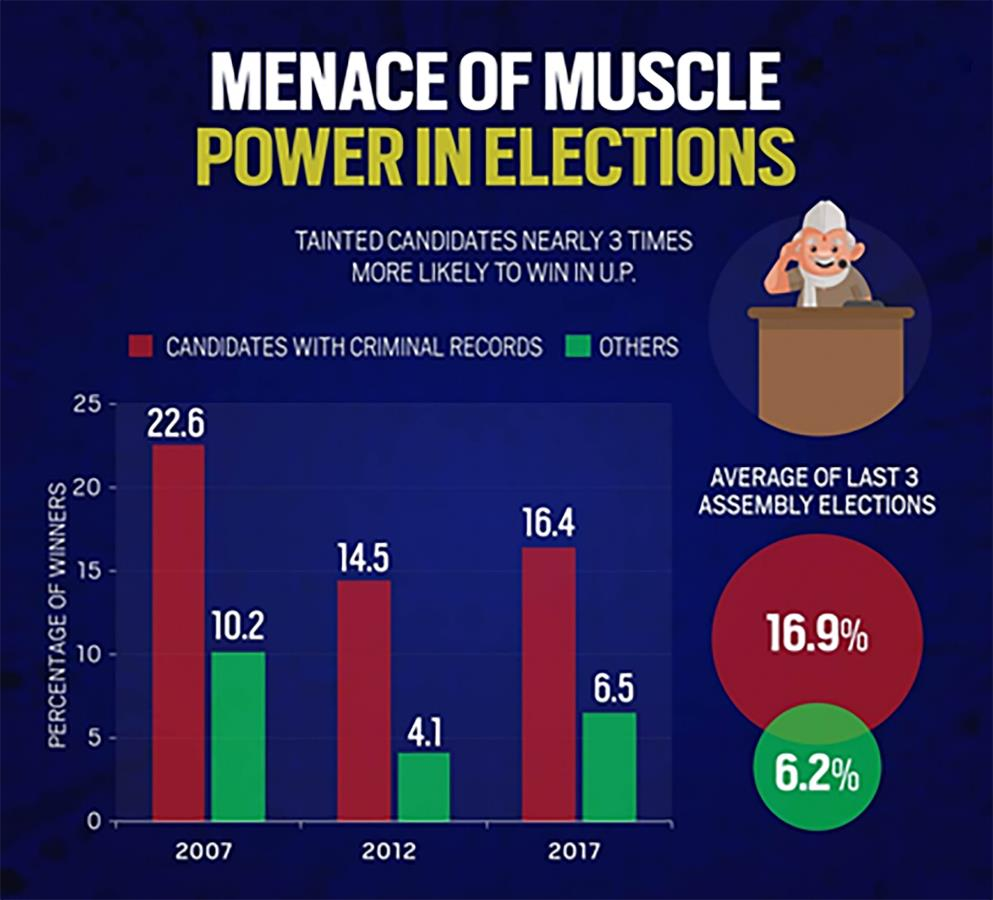
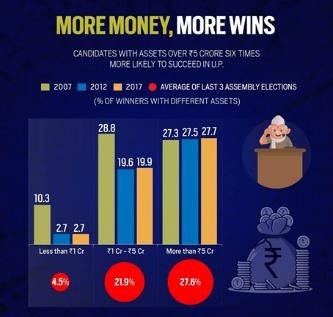 |
| Electoral Violence and Polarization |
|
| Misuse of caste and religion for electoral gains |
|
| Political Influence and Independence |
|
| Violation of Model Code of Conduct |
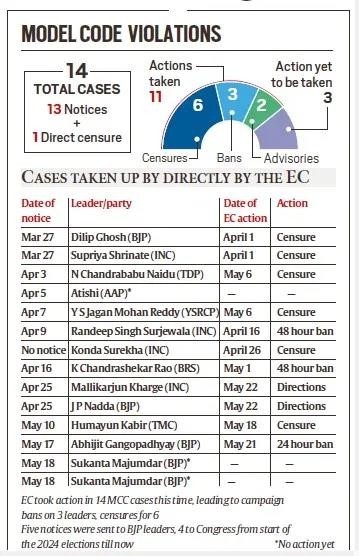
|
21.
What is the SVEEP (Systematic Voters' Education and Electoral Participation) initiative of ECI?
- SVEEP (Systematic Voters' Education and Electoral Participation) is a flagship programme of the Election Commission of India to promote voter education and participation in elections.
- To capture all the events and activity on a digital platform the Election Commission of India has developed a web-based solution that provides information and resources on voter education and participation in elections in India.
- The portal was launched in 2009 and is available in English, and Hindi.
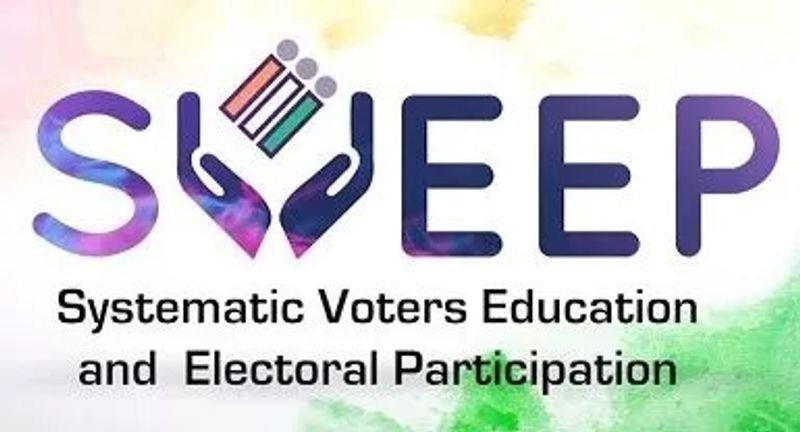
- In ECI there is a separate division that looks after it i.e., SVEEP division that organizes multi-intervention programmes that reaches out through different modes and media to educate citizens, electors, and voters about the electoral process in order to increase their awareness and promote their informed participation.
- The ECI SVEEP portal includes all the publications, e-books and awareness material to educate the citizens.
- The portal provides a variety of information and resources, including:
- Voter registration information
- Voter education materials
- Voter outreach programs
- Voter information and resources for marginalized groups
- All information available in hindi and english both.
22.
Enlist a few committees who suggested electoral reforms?
| Committees | Suggestion |
|---|---|
| Dinesh Goswami Committee (1990) |
|
| Indrajit Gupta Committee (1998) |
|
| Vohra Committee (1993) |
|
| Law Commission of India, in its 244th report. |
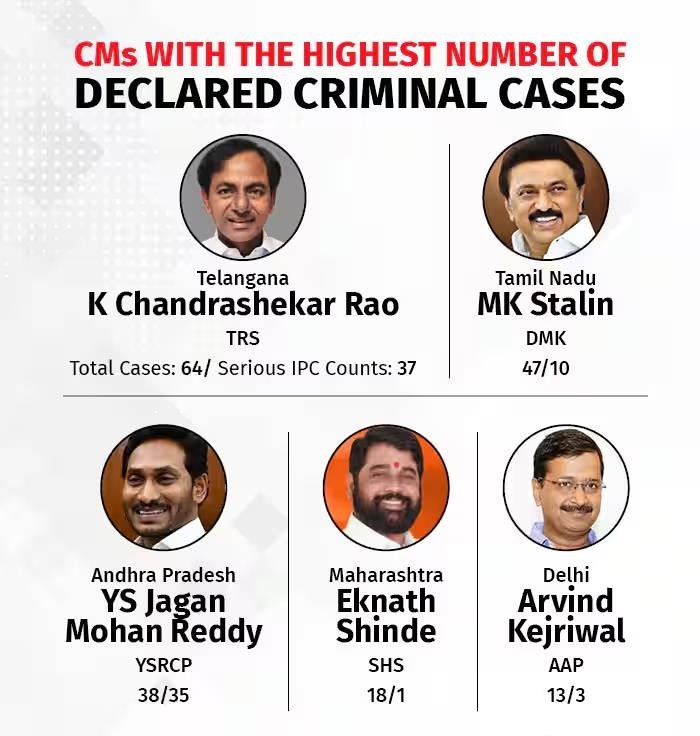
|
| Ram Nath Kovind Panel |
|
| TS Krishnamoorthy |
|
23.
Enlist some examples and case studies of election funding models from around the world?
| Countries | Election Funding Process |
|---|---|
| United States of America |
|
| United Kingdom |
|
| France |
|
24.
What are some essential prerequisites for free and fair elections?
| Prerequisites | Analysis |
|---|---|
| Accuracy |
|
| Awareness |
|
| Non-partisan environment |
|
| Reliability |
|
| Equality of Access |
|
- The most desirable outcome would involve absolute integrity of polling, uncompromised security of devices, reliability of the counting and polling processes, and devices that deliver a result consistent with the intent expressed by the voters.
- Such an outcome would inspire confidence that everyone has had a fair and equal opportunity to be a voter, that the party holding executive power has not had undue influence on or gains from the process, and that the system has delivered a result that truly reflects the will of the voters.
What is the relevance of the topic for UPSC CSE?
For Prelims: One Nation, One Election, India's electoral landscape, Representation of the People Act 1951,, Law Commission of India, Model Code of Conduct, Election Commission, Electronic Voting Machines, 15th Finance Commission.
For Mains: Historical Evolution of ONOE in India, Key Benefits and Challenges Related to One Nation One Election, Election funding, Electoral reforms.
Some Previous Years Prelims Questions
Q1. Consider the following statements:(2023)
1. If the election of the President of India is declared void by the Supreme Court of India, all acts done by him/her in the performance of duties of his/her office of President before the date of decision become invalid.
2. Elections for the post of the President of India can be postponed on the ground that some Legislative Assemblies have been dissolved and elections are yet to take place.
3. When a Bill is presented to the President of India, the Constitution prescribes time limits within which he/she has to declare his/her assent.
How many of the above statements are correct?
(a) Only one
(b) Only two
(c) All three
(d) None
Q2. Consider the following statements in respect of election to the President of India.(2023)
1. The members nominated to either House of the Parliament or the Legislative Assemblies of States are also eligible to be included in the Electoral College.
2. Higher the number of elective Assembly seats, higher is the value of vote of each MLA of that State.
3. The value of vote of each MLA of Madhya Pradesh is greater than that of Kerala.
4. The value of vote of each MLA of Puducherry is higher than that of Arunachal Pradesh because the ratio of total population to total number of elective seats in Puducherry is greater as compared to Arunachal Pradesh.
How many of the above statements are correct?
(a) Only one
(b) Only two
(c) Only three
(d) All four
Some Previous Years Mains Questions
Q1. Examine the need for electoral reforms as suggested by various committees with particular reference to “one nation-one election principle. [2024]
Q2. Discuss the procedures to decide the disputes arising out of the election of a Member of the Parliament or State Legislature under The Representation of the People Act, 1951. What are the grounds on which the election of any returned candidate may be declared void? [2022]
Q3. Discuss the role of the Election Commission of India in the light of the evolution of the Model Code of Conduct. [2022]
Some Questions from This Year and Previous Years Interview Transcripts
Board Suman Sharma mam:
- What two changes you would like to bring in the present electoral system.
Board Suman Sharma mam:
- What Electoral reforms would you suggest in the current election mechanism?
Board Suman Sharma mam:
- If you are asked to choose between One Nation One Election and Waqf Bill , which one will you choose and why ?
Board Lt gen Raj shukla sir:
- One nation one election - Do you support or oppose?
Board Suman Sharma:
- You are an electronics engineer.
- Tell me whether EVM can be hacked?
- Should state sponsored elections be promoted?
- What should be done regarding criminalization of politics?
Some Questions for QUIZ
Q1. Consider the following features:
1. Qualifications and disqualifications of voters
2. Allocation of seats to Lok sabha
3. Delimitation of constituencies
4. Manner of filling the seats
5. Preparation of electoral rolls
How many of the above features are part of the Representation of People’s Act, 1950?
(a) Only two
(b) Only three
(c) Only four
(d) All five
Some Questions for POLL
Q1. Do you think India is ready for One Nation One Election?
(a) YES
(b) NO
(c) Can’t say
Q2. Should India allow state funding of elections?
(a) YES
(b) NO
(c) Can’t say